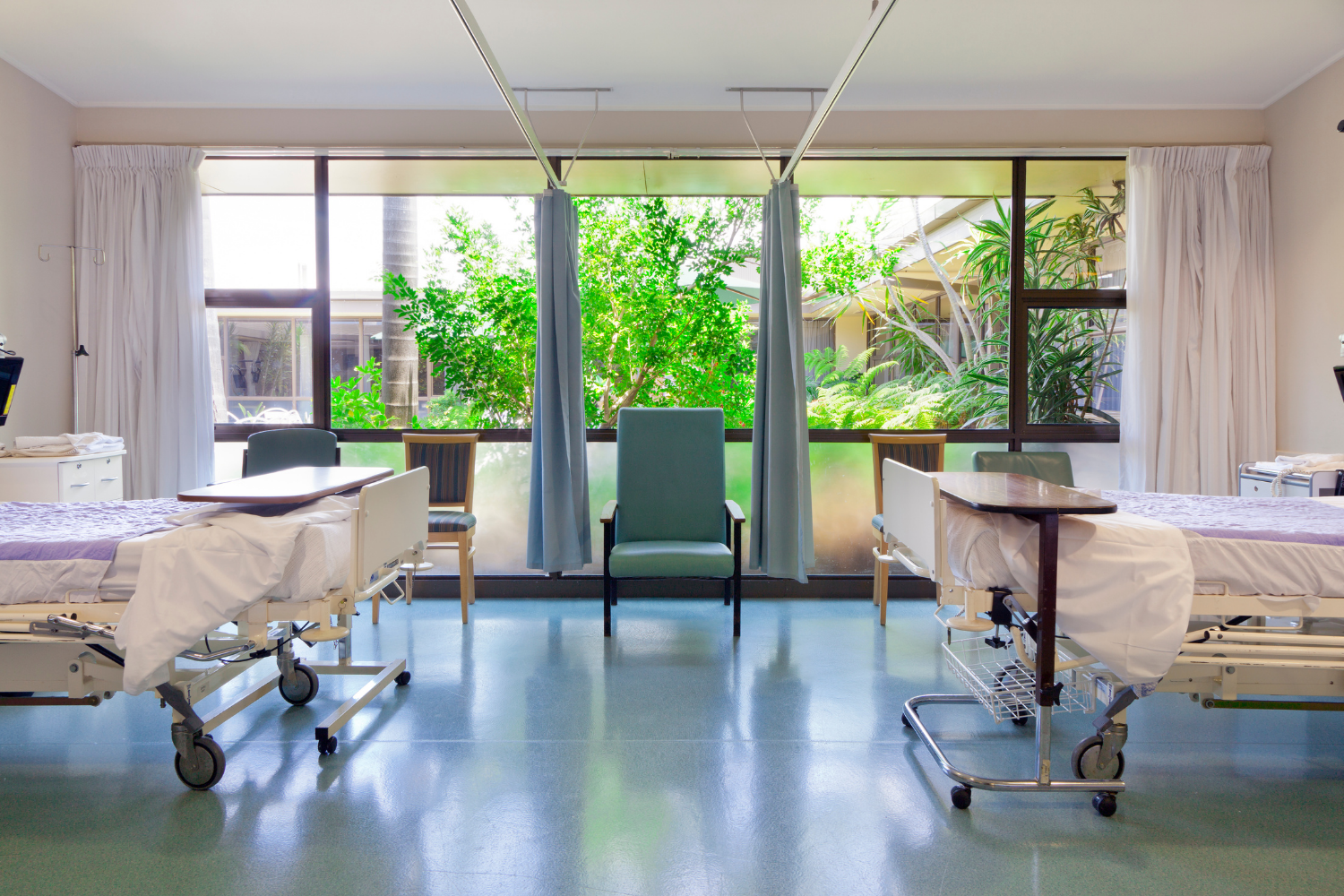Self Care for Patients and Caregivers
The antiseptic smell. The cold tiles beneath your feet. The alarms beeping. A voice on the loudspeaker. Unfamiliar masked faces. You’re asleep, now you’re awake, fluorescent lights flickering, blinding. Now a needle, now a pill. No matter if you are the patient or a caregiver, time spent in a hospital or medical environment can feel like an assault to the senses, driving your nervous system into high alert.
Tens of thousands of people are currently hospitalized with COVID-19 in the United States. And as if a pandemic were not cruel enough, other medical conditions don’t just hit the breaks because there’s a new virus in town. If you or your loved one are undergoing treatment for any illness, the current environment makes a hard time even more uncertain.
Some people in your life, through this time, may pepper you with platitudes or encourage you to look on the bright side. The “Live, Laugh, Love” school of toxic positivity will insist you ignore the hard issues and find a silver lining. Or my favorites--the “At Least” Patrol--seem determined to handle the “bargaining” stage of grief for you. At least he doesn’t need oxygen. At least this kind of cancer responds well to treatment. At least you have insurance.
Dwelling in “at least” is less helpful than taking meaningful action. Whether you are receiving treatment or acting as a caregiver, taking small actions to care for yourself can be very grounding in an environment where disruptions are constant and the status is always changing. None of this advice is perfect or all-encompassing, but combined in a way that works for you, may help the most difficult situation be more bearable.
ADVICE FOR PATIENTS
Feel a Sense of Mastery.
It’s important, if you are a patient, to feel a sense of mastery and control during this time when so much is happening to you. Finding a way to communicate is the most important factor. If you can’t communicate your wishes clearly, it’s easy to slip into frustration, anger, and depression. All of these things can ultimately make your condition worse.
Develop a Routine.
Make sure you are awake for some time during the day, even if your medical team is waking you in the night. A sleep schedule is key to recovery. If you have a window in your room, use the daylight to help your circadian rhythms stay on track. Leave the curtains open during the day, and use an eye mask at night to block out the lights from machines or the hallway.
Care for Something Else.
If it’s allowed, see if you can have a plant in your room--something to water or check on daily. Caring for another living thing is another element to add to your routine, and it’s a good reminder that you can be a caregiver as well as someone who receives care.
Find Something to Do with Your Hands.
Sitting in a hospital room all day can be very anxiety-inducing. Having materials to manipulate while you are healing is ideal. Model magic clay is a good material to work with. Coloring books or Zentangle drawing materials are portable and easy to keep clean. And unlike puzzles or Sudoku, with these materials, your hands can be busy while your mind can rest.
Keep it Human.
When I work with children who are hospitalized, I often have them ask a question of every medical professional who comes in: what’s your favorite color? What’s your favorite food? For kids, having this “data” to collect helps keep them engaged and reduces anxiety when staff enter the room. But this is a good exercise for adults, too. For adults, having a question for staff (“Where did you grow up?” “Do you have kids?”) is grounding in remembering that you yourself are a human who makes conversation, and the people caring for you aren’t just needles and drugs, but people with lives outside of these walls.
ADVICE FOR CAREGIVERS
Down-regulate your nervous system.
Sounds, smells, and lights can trigger the body’s trauma response even when you yourself are not the patient. You can help to shift your body from a heightened state to one of calm relaxation, which will help you take care of yourself and be a better advocate for the person you’re with. Some things to try: Slow your breathing by counting to five on your inhale and six on your exhale. Do a body scan, imagining every part of your body unclenching and relaxing, from your skull to your jaw to your shoulders, all the way down to your feet. Imagine a place where you have felt safe and at peace in your life, and close your eyes and visualize walking through each room. You might also try the Emotional Freedom Technique (EFT) tapping method, which some people report can ease anxiety and pain. All of these techniques can be applied in tense moments, moments of waiting, or even at the end of the day if you are having trouble getting to sleep.
Lean on your inner circle.
One of the hardest things about this pandemic is that family and friends are often not allowed in the hospital to support a patient. If you are waiting at home while your loved one is hospitalized, and you’re not allowed to visit, turn to your inner circle. Ask someone you trust to stay with you at home. Remember that even though you are not there, your loved one is surrounded by their care team. You need your care team, too. Ask someone you trust to be your “communicator” for your extended circle. Text them with updates and ask that they share on your behalf. This minimizes the amount of communication you have to provide. Your communicator can also shield you from additional questions coming your way so that you can preserve your energy.
Stay connected to the universe outside of the medical crisis, but don’t feel like you have to “be strong.”
If you are staying with your loved one in the hospital, make sure you are getting a hot shower every day. Wash your hair, even if it’s not dirty. Try to remember to eat on a normal schedule. Take small breaks outdoors and do something “normal,” like taking a walk or buying a coffee. When you are worrying about the health of someone you love, the rest of the universe can feel very unreal. Your job, your bills, upcoming holidays, other people taking vacations. Even the medical staff bantering with each other--this is your crisis, but this is their everyday life. Dip a toe into normalcy, but don’t feel like you have to live there. You do not have to “show up” for things like you usually would during this time. Feel free to not celebrate a birthday or holiday if it doesn’t feel right. You are not required to be strong and pretend nothing is wrong while you feel like you’re underwater.


